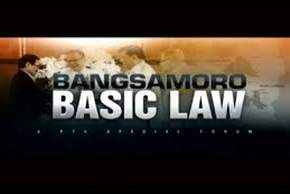

From the Website of PRWC CPP-NPA-NDF
links: http://www.ndfp.org/rejoinder-ernesto-angeles-alcanzares-article-pdi-joma-can-help-win-peace/
I read the article in the Philippine Daily Inquirer by a certain Ernesto Angeles Alcanzare “How Joma can help to win peace”
and felt obliged to make this response. The author describes himself as
the main organizer of “YES FOR PEACE”, which is supposed to be a
non-government organization (NGO).
peace”
and felt obliged to make this response. The author describes himself as
the main organizer of “YES FOR PEACE”, which is supposed to be a
non-government organization (NGO).
I have never heard of this organization before and thought maybe this is just one of those fly-by-night NGOs that proliferate these days. It turns out it has some history starting from 1988. It turns out further that it has been associated since the 1990s with the office of the GPH president on the peace process starting from Presidential Assistant on the Peace Process Gen. Manuel Yan up to the present OPAPP. A photo posted on the organization’s Facebook account shows Mr. Ernesto Angeles Alcanzare and OPPAP head Ging Deles holding together a symbol of YES for PEACE during a celebration of the EDSA “revolution” in the presence of GPH Pres. Benigno Aquino III
On its Facebook page it says that in 2002, it “repackaged itself as YES FOR PEACE – Bayanihan para sa Kapayapaan. The questions were reformulated in cooperation with the Office of the Presidential Adviser on the Peace Process.”
It further states on its Facebook page that the campaign of “YES FOR PEACE was pursued … parallel to the Internal Peace and Security Plan (IPSP Bayanihan) of the Armed Forces of the Philippines (AFP) and the I AM FOR PEACE campaign of OPAPP…”
It became clear to me that this so-called YES for PEACE is nothing more but another psywar arm of the GPH (Aquino regime) masquerading as an NGO.
Let me now answer some of the points he raises in his article. The pertinent quotes are in italics followed by my comments.
But Mr. Alcanzare picks up this point just so he can throw a malicious insult at Joma Sison insinuating that having a neutral venue abroad is a mere whim of one person to keep himself safe while others experience hardships at home. Has Mr. Alcanzare experienced operating in the guerrilla zones or jailed and tortured for many years to belittle the sacrifices that Joma has gone through?
If the negotiations were to be held in an urban area in the Philippines, NDFP negotiators would be subjected to overwhelming pressure and threats from military and police surveillance and frequent intrusions by psywar agents of the US and GPH and the dominant mass media of the oligarchy. If the talks were held in the countryside, the two negotiating sides would have to mobilize their armed personnel to ensure their security and there are the dangers of violent encounters and intrigues from third parties. Some rogue elements who do not wish the peace process to succeed can act as “spoilers.”
The NDFP has learned its lesson from its experience in 1987 when it agreed to hold peace negotiations in Manila. It was marred by the violent dispersal of peasants in front of Malacanang which came to be known as the Mendiola Massacre. NDFP negotiators and their technical and security personnel were forced to hurriedly withdraw to their base in the countryside. The AFP later boasted that it reaped an intelligence bonanza on the NDFP personnel in the various regions who surfaced in order to coordinate with their GPH counterparts to monitor the bilateral ceasefire.
Some ten major agreements have been forged and signed by the two sides working in a neutral venue abroad free from pressure and security concerns.
In order to have transparency, the negotiations do not have to be held in the Philippines. Even during formal talks and before and after these, the negotiating panels are transparent and in close contact with their principals and constituencies.
For the information of Mr. Alcanzare, the GPH and NDFP long ago have made an exchange of drafts on socio-economic reforms. The GPH submitted a 4-page draft full of vague motherhood statements while the NDFP gave a draft of more than 100 pages citing the needed reforms and detailing how they can be implemented. Since then the GPH did all it can to stall the talks in order to avoid tackling the NDFP proposals which the NDFP considered as the meat of the whole negotiations because these address the problems of poverty, landlessness, unemployment, etc. what Mr. Alcanzare calls the “national issues that need every Filipino’s attention”. The NDFP draft was the product of the work of patriotic economists and other experts, and substantive consultations conducted by the NDFP in various parts of the Philippines with people’s organizations of workers, peasants, women, youth, government employees, etc.
The GPH draft containing motherhood statements clearly showed that the GPH side was not serious and was merely going through the motions and in the meantime demanding the surrender of the forces represented by the NDFP, such surrender being the only thing that really mattered to them.
As for doable agreements, I would cite only one just to illustrate my point. There is the “Joint Agreement in Support of Socio-economic Projects of Private Development Organizations and Institutes” of March 16, 1998, an agreement immediately implementable even before a comprehensive agreement on socio-economic reforms would have been approved. But this agreement was never implemented because some elements in the GPH side thought that it would supposedly benefit the NDFP more than the GPH.
There are some “peace advocates” from the NGO community who project themselves as standing above the two parties in the conflict and claiming to speak on behalf of the Filipino people. From what they base such claim nobody knows.
links: http://www.ndfp.org/rejoinder-ernesto-angeles-alcanzares-article-pdi-joma-can-help-win-peace/
I read the article in the Philippine Daily Inquirer by a certain Ernesto Angeles Alcanzare “How Joma can help to win
I have never heard of this organization before and thought maybe this is just one of those fly-by-night NGOs that proliferate these days. It turns out it has some history starting from 1988. It turns out further that it has been associated since the 1990s with the office of the GPH president on the peace process starting from Presidential Assistant on the Peace Process Gen. Manuel Yan up to the present OPAPP. A photo posted on the organization’s Facebook account shows Mr. Ernesto Angeles Alcanzare and OPPAP head Ging Deles holding together a symbol of YES for PEACE during a celebration of the EDSA “revolution” in the presence of GPH Pres. Benigno Aquino III
On its Facebook page it says that in 2002, it “repackaged itself as YES FOR PEACE – Bayanihan para sa Kapayapaan. The questions were reformulated in cooperation with the Office of the Presidential Adviser on the Peace Process.”
It further states on its Facebook page that the campaign of “YES FOR PEACE was pursued … parallel to the Internal Peace and Security Plan (IPSP Bayanihan) of the Armed Forces of the Philippines (AFP) and the I AM FOR PEACE campaign of OPAPP…”
It became clear to me that this so-called YES for PEACE is nothing more but another psywar arm of the GPH (Aquino regime) masquerading as an NGO.
Let me now answer some of the points he raises in his article. The pertinent quotes are in italics followed by my comments.
“WE THANK Jose Maria Sison for being more open on the issues and proposals of the National Democratic Front (NDF) online.
At the very least, it shows that he may now be ready to agree to the conduct of an open, participatory and comprehensive peace process, even as he still insists that this be conducted outside the country, primarily because of his deeply held concerns for his and his peace negotiators/consultants’ personal security and safety. This is understandable: Those fighting a war would rather enjoy its fruits than be counted among those who have sacrificed their lives in the name of national democracy.”For the proper education of Mr. Ernesto Alcanzare, conducting peace negotiations in a foreign venue is not something out of the ordinary. Peace negotiations between the Israelis and Palestinians had been held in Oslo, between the Americans and Vietnamese in Paris, between the Colombian government and FARC in Cuba, etc.
But Mr. Alcanzare picks up this point just so he can throw a malicious insult at Joma Sison insinuating that having a neutral venue abroad is a mere whim of one person to keep himself safe while others experience hardships at home. Has Mr. Alcanzare experienced operating in the guerrilla zones or jailed and tortured for many years to belittle the sacrifices that Joma has gone through?
If the negotiations were to be held in an urban area in the Philippines, NDFP negotiators would be subjected to overwhelming pressure and threats from military and police surveillance and frequent intrusions by psywar agents of the US and GPH and the dominant mass media of the oligarchy. If the talks were held in the countryside, the two negotiating sides would have to mobilize their armed personnel to ensure their security and there are the dangers of violent encounters and intrigues from third parties. Some rogue elements who do not wish the peace process to succeed can act as “spoilers.”
The NDFP has learned its lesson from its experience in 1987 when it agreed to hold peace negotiations in Manila. It was marred by the violent dispersal of peasants in front of Malacanang which came to be known as the Mendiola Massacre. NDFP negotiators and their technical and security personnel were forced to hurriedly withdraw to their base in the countryside. The AFP later boasted that it reaped an intelligence bonanza on the NDFP personnel in the various regions who surfaced in order to coordinate with their GPH counterparts to monitor the bilateral ceasefire.
Some ten major agreements have been forged and signed by the two sides working in a neutral venue abroad free from pressure and security concerns.
In order to have transparency, the negotiations do not have to be held in the Philippines. Even during formal talks and before and after these, the negotiating panels are transparent and in close contact with their principals and constituencies.
Joma’s declaration that “The changes we wanted to happen in our country are very doable if the Duterte government is determined, together with the NDF, to have fundamental change, genuine freedom, and development,” is—on the surface—very laudable and worth pursuing.
However, it raises many questions. Exactly what does he mean by that declaration? Can’t Joma state his ideas simply—not in “motherhood forms”—so that they would be easily understood by the people? Does he honestly believe that his “motherhood ideas” can be clearly defined for us only by the government and NDF negotiators meeting halfway across the world? How can peace talks—held outside of the country and facilitated by foreigners speaking a language that causes most Filipinos “nosebleeds,” so to speak—ever solve national issues that need every Filipino’s attention?The two main socio-economic demands of the NDFP are national industrialization and genuine land reform. National industrialization meaning setting up heavy, medium and light industries controlled by Filipinos not by foreigners. Genuine land reform meaning free land distribution because the peasants have already paid many times over for the land they have been tilling for decades. These things are understandable to ordinary workers and peasants. Are these too incomprehensible to UP graduate Mr. Alcanzare? These are also very doable as long as there is the faith in our people’s ability and there is the political will of the country’s leaders to do it. The ruling classes make these simple things look complicated and “unrealistic” simply as an excuse for not doing them.
For the information of Mr. Alcanzare, the GPH and NDFP long ago have made an exchange of drafts on socio-economic reforms. The GPH submitted a 4-page draft full of vague motherhood statements while the NDFP gave a draft of more than 100 pages citing the needed reforms and detailing how they can be implemented. Since then the GPH did all it can to stall the talks in order to avoid tackling the NDFP proposals which the NDFP considered as the meat of the whole negotiations because these address the problems of poverty, landlessness, unemployment, etc. what Mr. Alcanzare calls the “national issues that need every Filipino’s attention”. The NDFP draft was the product of the work of patriotic economists and other experts, and substantive consultations conducted by the NDFP in various parts of the Philippines with people’s organizations of workers, peasants, women, youth, government employees, etc.
The GPH draft containing motherhood statements clearly showed that the GPH side was not serious and was merely going through the motions and in the meantime demanding the surrender of the forces represented by the NDFP, such surrender being the only thing that really mattered to them.
“For the past three decades, the government—in its desire to set in place an era of a just, comprehensive and lasting peace—has consistently acceded to Joma’s “demand” that the peace negotiations be held in the Netherlands, with unquestionably sincere Dutchmen mediating the process. And yet, all through these years, nothing substantial has been agreed upon. To this day, not a single doable agreement on how to go about bringing social change has been reached.”For the information of Ernesto Alcanzare, the negotiations have never been “mediated by sincere Dutchmen”. It is the Royal Norwegian Government that has been generous in hosting the peace negotiations all these years. And it has been your GPH’s lack of interest and desire to seriously address the necessary socio-economic reforms and your GPH’s demand for surrender even before there is agreement on the reforms that has sabotaged the talks from the regime of Estrada to Arroyo, and Benigno Aquino III.
As for doable agreements, I would cite only one just to illustrate my point. There is the “Joint Agreement in Support of Socio-economic Projects of Private Development Organizations and Institutes” of March 16, 1998, an agreement immediately implementable even before a comprehensive agreement on socio-economic reforms would have been approved. But this agreement was never implemented because some elements in the GPH side thought that it would supposedly benefit the NDFP more than the GPH.
“Maybe it is time we seriously gave the NDF position on the negotiating table a rethink. Perhaps it is time we listened to the sentiments of 98.3 percent of Filipinos who—based on results of the peace education and advocacy phrase of “YES FOR PEACE Bayanihan para sa KKK” (Kapayapaan, Kaunlaran at Kasaganahan)—would rather see the peace talks held here instead of abroad…Therefore, we, the people, need to know what Joma is claiming on our behalf.”Mr. Ernesto Alcanzare is so presumptuous as to claim that he speaks for the 98.3 percent of Filipinos! In actual fact, he speaks for the GPH because he parrots the GPH line of Ging Deles and Alex Padilla, the notorious saboteurs of the GPH-NDFP peace negotiations about “giving in too much to the demands of the NDFP”, having the peace negotiations in the Philippines, etc. The NDFP can at least speak for its organized forces that run into hundreds of thousands and its mass base of adherents that run into millions in both the cities and countryside.
There are some “peace advocates” from the NGO community who project themselves as standing above the two parties in the conflict and claiming to speak on behalf of the Filipino people. From what they base such claim nobody knows.
CPP/NPA/NDF Website
Article links:
http://www.ndfp.org/rejoinder-ernesto-angeles-alcanzares-article-pdi-joma-can-help-win-peace/
http://www.ndfp.org/rejoinder-ernesto-angeles-alcanzares-article-pdi-joma-can-help-win-peace/
OTHER HUMAN RIGHTS PROMOTIONS WEBSITES
PROTECTION AND PROMOTION OF HUMAN RIGHTS
-----------------------------------------------------------------------------------------------
------------------------------------------------------------
-----------------------------







































0 comments:
Post a Comment